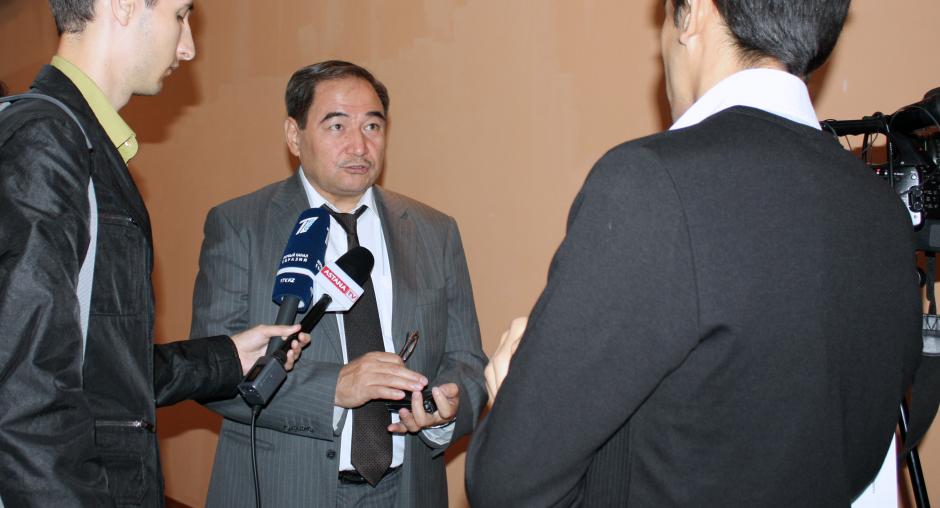OSCE Centre in Astana project helps to improve identification of trafficking victims

ASTANA, 29 August 2012 – The results of a project on identifying victims of trafficking and ways to improve current practice were the focus of an OSCE-supported roundtable meeting held in Astana today.
At the event, the OSCE Centre in Astana presented the results and lessons learnt of a three-year monitoring and capacity building project conducted in co-operation with the International Legal Initiative NGO. As part of the project presumed victims of trafficking were identified by monitoring places of detention and rehabilitation centres for juveniles and homeless people in six regions of the country. In 2012, seven regional training courses for the staff of these institutions were conducted to raise their awareness of the issue and improve their victim identification skills. An OSCE-supported publication which includes an analysis of the current situation with identifying trafficking victims in Kazakhstan and recommendations to improve the legislative and institutional framework was also presented during the event.
Jeannette Kloetzer, the Deputy Head of the OSCE Centre in Astana, said: “The OSCE supports the Government of Kazakhstan and civil society in their anti-trafficking efforts, in particular in strengthening law enforcement’s capacity to identify victims of trafficking. We hope that the experience gained from the project will be used in the future to improve the country’s victim identification and protection system.”
Aina Shormanbayeva, the President of the International Legal Initiative NGO, added: “During 2010-2012, the project helped to identify 104 victims of trafficking, including 14 children. Among them 28 victims were subjected to sexual exploitation, 74 to forced labour and two were victims of mixed exploitation. Effective identification procedures in this regard are essential to protect victims and ensure their access to justice, health care and social rehabilitation.”
The meeting brought together some 30 participants from the Supreme Court, General Prosecutor’s Office, ministries’ representatives, state social rehabilitation centres for homeless persons and juveniles, as well as non-governmental and international organizations representatives. It is part of the OSCE Centre's long-term commitment to promote a victim-centred approach in combating human trafficking.
